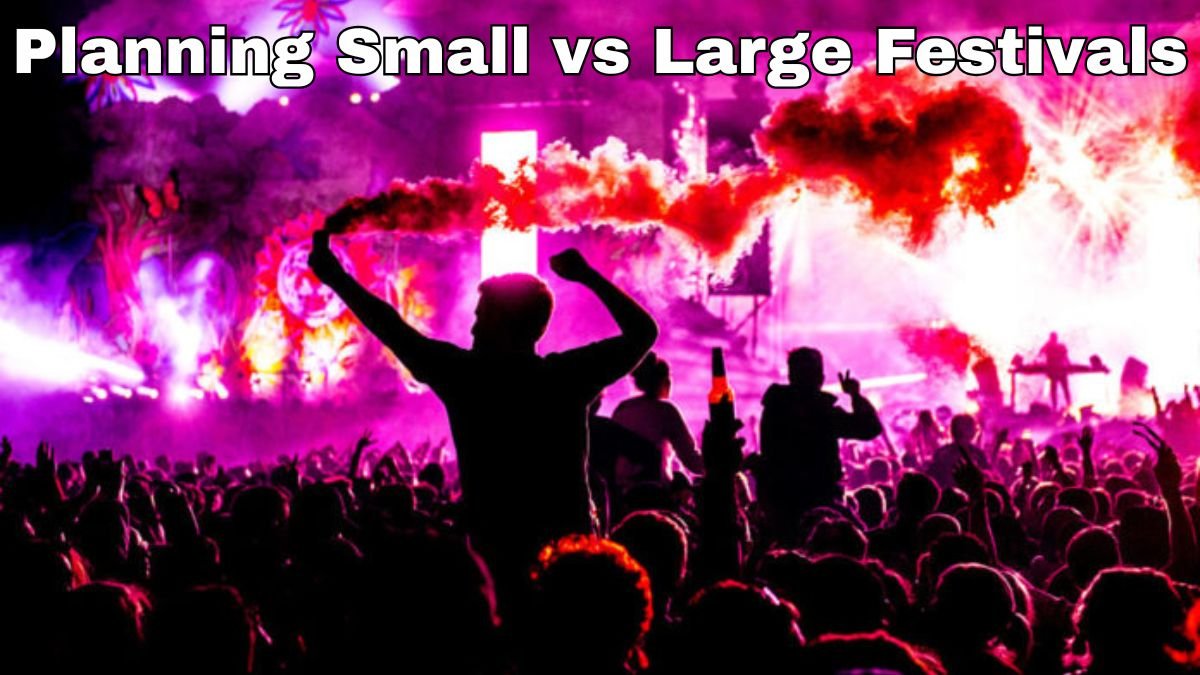Planning an event and watching it unfold is a great experience. But when that event is on a larger scale, there are many more elements to consider throughout the planning process. Planning large-scale events requires greater attention to detail and an understanding of the different aspects of event planning. It also requires the confidence that everything is being managed efficiently.
When you’re planning an event, regardless of its size, having a plan and timeline is essential. Thus, we’ve compiled an event planning checklist to help you stay organized and on track throughout the planning process. From large-scale event planning to each factor that will make your events successful, we’re here to help you every step of the way.
Types of Large-Scale Events
To give you an idea, here are some examples of large-scale events that require a lot of planning, resources, and attention:
- New Product Launches: This is when a company unveils a new product or service to the public. Usually, these tend to be large-scale events with a great deal of hype and fanfare.
- Industry Conferences: This can be anything from a digital media conference to an electronics conference, or even a medical conference.
- Global Company Holiday Parties: These are festive events that companies often throw to celebrate the holidays with their employees.
- Professional Seminars: Professional seminars are events that provide insight into a particular industry. They may focus on the latest trends in technology, innovations in marketing, or even motivational talks for entrepreneurs.
Types of Small-Scale Events
Small-scale events tend to require fewer resources and planning than large-scale events. Here are some examples of small-scale events that can be planned in a relatively short amount of time:
- Birthday Parties: More often than not, birthday parties are usually celebrated on a small scale.
- Family Reunions: These usually only involve immediate family and close friends, so they tend to be smaller events.
- Corporate Training Seminars: Corporate training seminars are typically hosted on a small scale in order to bring together a select group of professionals for specialized training.
- Community Events: Community events can range from small-scale fundraisers to art shows.
- Dinner Parties: Common with friends and family, dinner parties are often small and intimate.
Differences Between Planning Large-Scale vs Small-Scale Events
With the mutual goal of successfully hosting an event, large-scale and small-scale events require different approaches when it comes to the planning process.
Budget
- Large-scale event budgeting is more complex, considering there are more people involved, higher costs for food, venues, and entertainment.
- Small-scale events require less budgeting since there are fewer people to cater to.
Event Logistics
- Large-scale events involve transportation, lodging, and security.
- Small-scale events may not require these logistics because of their limited size.
Management
- Large-scale events require highly organized planners and bigger teams.
- Small-scale events may need less management but still demand attention to detail.
Promotion
- Large-scale events benefit from social media campaigns, ads, and influencer collaborations.
- Small-scale events often rely on word-of-mouth and small online promotions.
Venue
- Large-scale events need research on hotels, convention centers, or big venues.
- Small-scale events are usually in intimate settings, easier to book.
Staffing
- Large events demand contractors, vendors, and security staff.
- Small events may not require additional staffing.
Timeframe
- Large-scale events need longer planning due to complexity.
- Small-scale events can be organized in a shorter time frame.
Main Benefits of Each Type of Event
Now that you understand the differences, let’s explore the benefits of both large and small-scale events.
Reasons to Organize a Large-Scale Event
- Raise awareness and visibility for a cause or organization.
- Foster community and connection by bringing large groups together.
- Create networking opportunities and professional growth platforms.
- Enhance brand reputation and credibility through large-scale exposure.
Reasons to Organize a Small-Scale Event
- More intimate and personal with deeper connections.
- More manageable and cost-effective for small budgets.
- Greater flexibility and adaptability in case of last-minute changes.
- More focus on attendee experience with personalized engagement.
Tips for Planning Large-Scale and Small-Scale Events
Regardless of size, event planning follows some universal steps. Here are essential tips:
Set Clear Goals and Objectives
- Define the purpose of your event.
- Decide financial targets or fundraising goals.
- Estimate ticket sales or attendance numbers.
- Plan the type of experience you want for attendees.
Set Your Budget
- Budgeting decides everything from venue to catering.
- Use past event data or estimates for accuracy.
- Adjust for unexpected expenses.
Secure the Necessary Resources
- Arrange venues, entertainment, catering, and technical needs.
- Ensure reliable WiFi, audio-visual equipment, and power backup.
Choose a Date and Time
- Pick a time that works for most attendees.
- Avoid holidays or clashing events.
- Consider weekdays vs weekends for maximum turnout.
Search for Sponsors
- Sponsors can offset costs and add credibility.
- Approach local businesses with clear sponsorship packages.
- Tailor sponsorship benefits based on event size.
Event Planning Made Easy with Attendee Interactive
Event planning can feel overwhelming, but the right tools make a big difference.
Attendee Interactive is a powerful platform that simplifies both large and small-scale event management. With features like:
- Collecting abstract submissions
- Reviewing and approving sessions
- Publishing final agendas
- Managing CE credits
Everything is handled in one place, saving time and effort.
